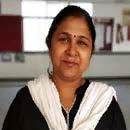International Journal of Education and Management Engineering (IJEME)
IJEME Vol. 10, No. 1, 8 Feb. 2020
Cover page and Table of Contents: PDF (size: 377KB)
A study to Analyze impact of social media on society: WhatsApp in particular
Full Text (PDF, 377KB), PP.1-10
Views: 0 Downloads: 0
Author(s)
Index Terms
Human needs, emotional health, WhatsApp, Social media
Abstract
With an enormous growth in the number of users for social media, it becomes important to understand its impact on the society. This paper is a small step in this direction by analyzing the impact of social media on the emotional health of its users. The paper in particular focuses on the impact of WhatsApp usage. In the study, authors have focused their research on 225 users. In this survey authors found that WhatsApp has a significant impact on the humans these days. It adversely impacts the youth and their education, behavior and routine life. This app is found to be highly addictive, which leaves a trace that becomes difficult to control. The impact of this application is so engrossing that users give up their real world interest and whole emotional quotient is restricted to the app. Their happiness or sadness depends on the reply that they receive from other users. They cannot control themselves from constantly chatting, replying and sharing of ideas. Hence, it is found during the study that some findings are alarming and needs to be controlled. It is noticed during the survey that WhatsApp has greatly influenced the life style of its users and therefore its usage should be monitored and controlled to avoid any adverse effect on emotional health of its users.
Cite This Paper
Monika Mangla, Smita Ambarkar, Rakhi Akhare, " A study to Analyze impact of social media on society: WhatsApp in particular ", International Journal of Education and Management Engineering(IJEME), Vol.10, No.1, pp.1-10, 2020. DOI: 10.5815/ijeme.2020.01.01
Reference
[1] C. Fredricksen, “Social networking reaches nearly one in four around the world,” Worldw. Soc. Netw. users 2013 Forecast Comp. Estim., 2013.
[2] A. Quan-Haase and A. L. Young, “Uses and gratifications of social media: A comparison of Facebook and instant messaging,” Bull. Sci. Technol. Soc., vol. 30, no. 5, pp. 350–361, 2010.
[3] A. Shiri and G. Chigunwe, “Contributions of WhatsApp Media to Domestic Violence in Bindura Urban,” Int. Open Distance Learn. J., 2017.
[4] C. Uhlein, “Explaining Cross-National Differences in Divorce: The Effects of Technology and Alcohol Consumption.”
[5] P. Olson, “WhatsApp Hits 600 Million Active Users, Founder Says,” Forbes, retrieved Oct., 2014.
[6] E. Karapanos, P. Teixeira, and R. Gouveia, “Computers in Human Behavior Need fulfillment and experiences on social media : A case on Facebook and WhatsApp,” Comput. Human Behav., vol. 55, pp. 888–897, 2016
[7] A. Dayani and S. Ariff, “Convenience or Nuisance ?: The ‘ WhatsApp ’ D ilemma,” vol. 155, no. October, pp. 189–196, 2014.
[8] M. Hartmann, “The triple articulation of ICTs. Media as technological objects, symbolic environments and individual texts,” Domest. media Technol., pp. 80–102, 2006.
[9] K. Church and R. de Oliveira, “What’s up with whatsapp?: comparing mobile instant messaging behaviors with traditional SMS,” in Proceedings of the 15th international conference on Human-computer interaction with mobile devices and services, 2013, pp. 352–361.
[10] C. Montag et al., “Smartphone usage in the 21st century: who is active on WhatsApp?,” BMC Res. Notes, vol. 8, no. 1, p. 331, 2015.
[11] A. M. Kaplan and M. Haenlein, “Users of the world, unite! The challenges and opportunities of Social Media,” Bus. Horiz., vol. 53, no. 1, pp. 59–68, 2010.
[12] W. G. Mangold and D. J. Faulds, “Social media: The new hybrid element of the promotion mix,” Bus. Horiz., vol. 52, no. 4, pp. 357–365, 2009.
[13] Z. Xiang and U. Gretzel, “Role of social media in online travel information search,” Tour. Manag., vol. 31, no. 2, pp. 179–188, 2010.
[14] D. K. Wright and M. D. Hinson, “How blogs and social media are changing public relations and the way it is practiced,” Public Relat. J., vol. 2, no. 2, pp. 1–21, 2008.
[15] C. Shirky, “The political power of social media: Technology, the public sphere, and political change,” Foreign Aff., pp. 28–41, 2011.
[16] A. Sánchez-moya and O. Cruz-moya, “Whatsapp , textese , and moral panics : discourse features and habits across two generations,” Procedia - Soc. Behav. Sci., vol. 173, pp. 300–306, 2015.
[17] D. Chambers, Social media and personal relationships: Online intimacies and networked friendship. Springer, 2013.
[18] E. Hirsch and R. Silverstone, Consuming technologies: Media and information in domestic spaces. Routledge, 2003.
[19] J. N. Cummings, B. Butler, and R. Kraut, “The quality of online social relationships,” Commun. ACM, vol. 45, no. 7, pp. 103–108, 2002.
[20] T. Bansal and D. Joshi, “A study of students experiences of WhatsApp mobile learning,” Glob. J. Human-Social Sci. Res., 2014.
[21] D. Bouhnik and M. Deshen, “WhatsApp goes to school: Mobile instant messaging between teachers and students,” J. Inf. Technol. Educ. Res., vol. 13, pp. 217–231, 2014.
[22] J. Yeboah and G. D. Ewur, “The impact of WhatsApp messenger usage on students performance in Tertiary Institutions in Ghana,” J. Educ. Pract., vol. 5, no. 6, pp. 157–164, 2014.
[23] A. A. M. S. Salem, “The impact of technology (BBM and WhatsApp Applications) on English linguistics in Kuwait,” Int. J. Appl. Linguist. English Lit., vol. 2, no. 4, pp. 65–69, 2013.
[24] K. Banquil et al., “Social networking sites affect one’s academic performance adversely,” UST Coll. Nurs., pp. 1–42, 2009.
[25] J. C. Nwazor and C. C. Godwin-Maduike, “Social media and academic performance of business education students in South-East Nigeria.,” J. Educ. Pract., vol. 6, no. 25, pp. 127–134, 2015.
[26] M. G. R. Sarker, “Impact of Whatsapp messenger on the university level students: A sociological study.”


